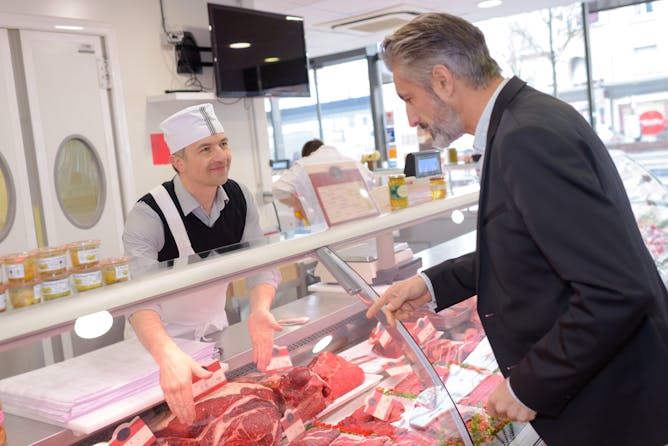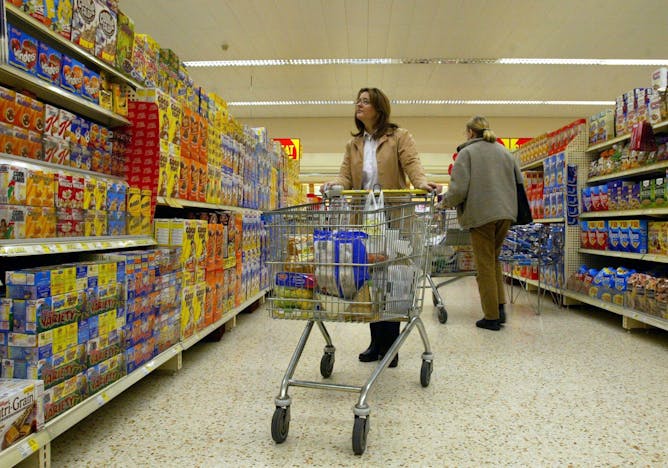|
It’s no secret that a meat-heavy diet comes with a large environmental footprint. In fact a UK government report found that people need to eat 30% less meat by the end of the decade if the country is to meet its climate commitments. According to official estimates, we are well on the way to achieving this – the National Diet and Nutrition Survey estimates that British people reduced their meat intake by 17% between 2008 and 2019.
This would appear to be strong progress. But Kerry Smith and Emma Garnett suggest that these results should be viewed with caution. By comparing this data with other research they have found discrepancies that suggest we may still be consuming far too much meat. This could have profound environmental consequences.
While cutting down on meat has environmental benefits, it is also healthier. By sustaining its commitment to its anti-obesity strategy, the UK government could solidify its position as a global leader on healthy eating.
Meanwhile, the first cohort of students in England to take the new T-level qualifications have received their results. But whether they offer a genuinely equivalent alternative to A-levels remains to be seen.
Sign up for these free online events on scaling up mental health provision, countering misinformation and the power of volunteering in the wake of COVID.
|

Contrary to official estimates, Britons may still be consuming too much meat.
ALPA PROD/Shutterstock
Kerry Smith, University of Reading; Emma Garnett, University of Oxford
Official estimates indicate that meat consumption is falling in the UK – but not all of the data agrees.
|

Consumers need more help to make healthy food choices.
PA Images / Alamy Stock Photo
Christina Vogel, University of Southampton; Preeti Dhuria, University of Southampton; Sarah Muir, University of Southampton
Legislation that restricts how shops promote unhealthy food came into force in England on October 1. It’s a good start, but more is needed.
|

Girls in technology class.
Monkey Business Images/Shutterstock
Elizabeth Gregory, University of Manchester; Hannah Ruth McCarthy, University of Manchester
The first cycle of T-levels has caused some confusion.
|
Ukraine Invasion
|
-
Christoph Bluth, University of Bradford
Western analysts believe Russia’s accusations are a ‘false flag’ operation designed to shift the blame for any use of WMDs on to Ukraine.
|
|
Politics + Society
|
-
Guido Alfani, Bocconi University; Cormac Ó Gráda, University College Dublin
The looming Somalian famine might be the first in a string of back-to-back catastrophes, says an expert.
-
Jade Levell, University of Bristol; Rosalie Ward, University of Bristol
The Istanbul convention aims to tackle violence, including domestic abuse, rape, female genital mutilation and forced marriage. Some states are wavering in their commitment to its provisions.
-
John Curtice, University of Strathclyde
Recent polling indicates that the EU question is central in the minds of Scottish independence voters.
|
|
Arts + Culture
|
-
Orlaith Darling, Trinity College Dublin
Shakespeare often portrayed crises of legitimacy and reflected on the politics of his day but the Tories might not fare so well in a modern production.
|
|
Business + Economy
|
-
Robert Picard, University of Oxford
How long does the licence fee have left?
-
Patrick E. Shea, University of Glasgow
Debt is becoming unaffordable.
|
|
Health
|
-
Duane Mellor, Aston University
An occasional butter board with friends is unlikely to cause any harm.
|
|